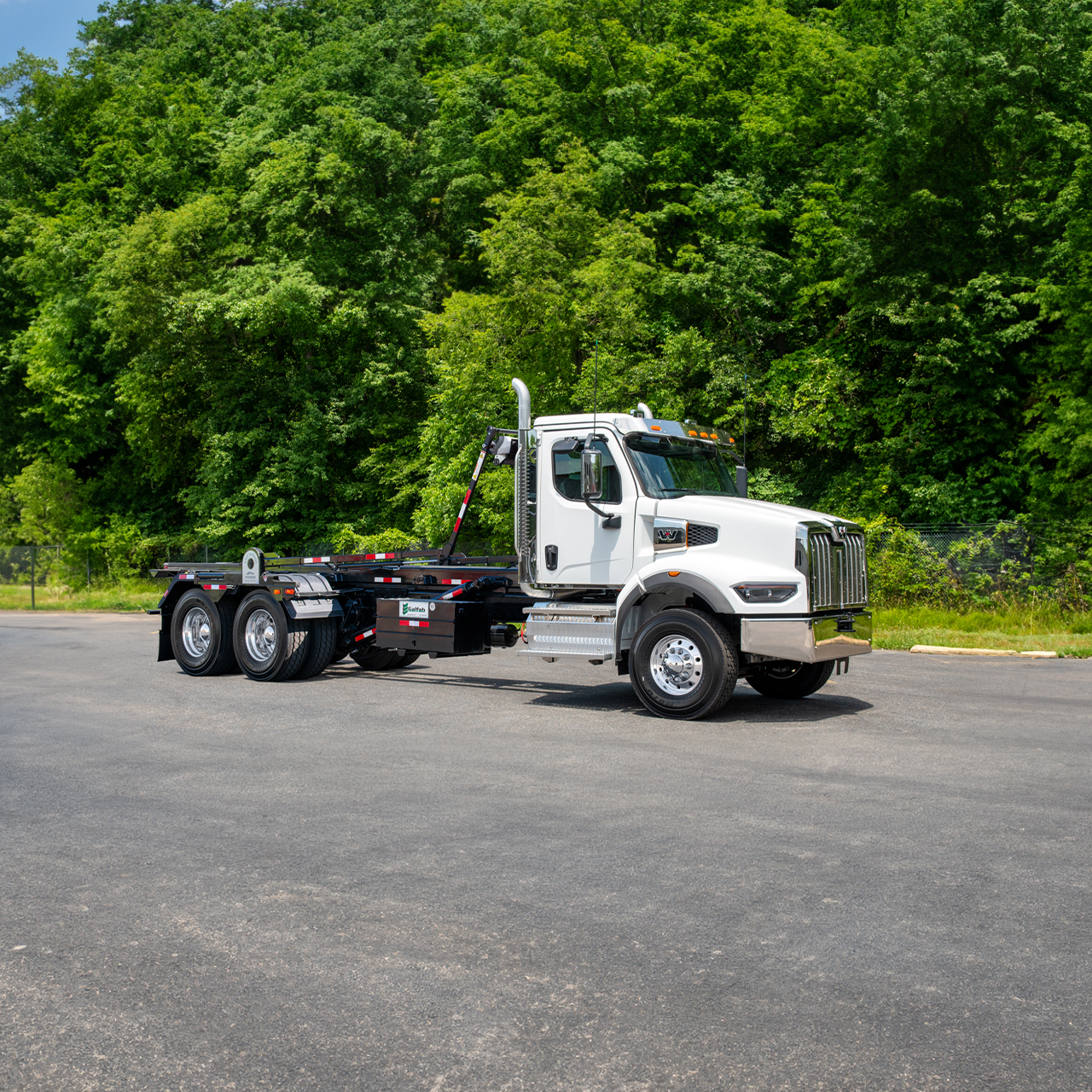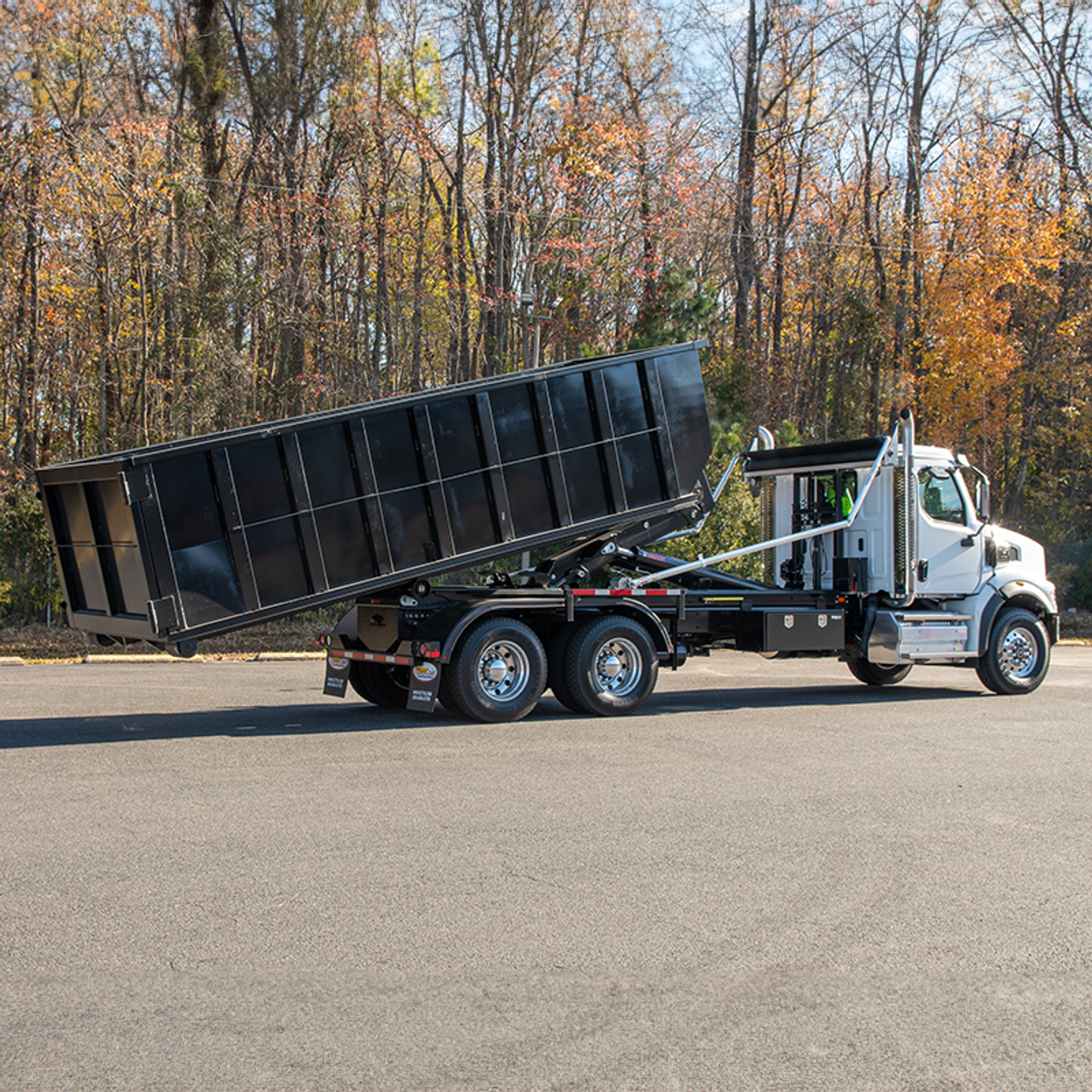Take the Roll-Off Quiz!

The Advantages of Using Roll-Off Trucks
The advantage to using a roll-off truck or dumpster truck as opposed to a fixed body truck is the freedom to load any type of container that sits on rails. (This flexibility is highly valued in the industry as it allows for a smaller yet versatile fleet). Also, with an extended tailgate, your truck can be a dump truck, container carrier or flatbed. Being open, rectangular containers capable of rolling and tilting make roll-off trucks a good fit for the needs of several different industries.
Roll-off trucks are used by:
- Waste management professionals
- Dealers in scrap
- Construction firms to haul waste, scrap materials and debris wherever they need to go
There may even be a few applications for dump trailers that you never thought of. The most common sized roll-off truck is 14 ft., which is a good size for moving a mini skid steer or compact utility loader while remaining highly maneuverable.
How do you know if you’re ready for a roll-off truck?

Take the Roll-Off Ready Quiz!
- Are you paying someone else to haul things for you?
- Are drivers standing by awaiting pickups and deliveries?
- Does your routine business utilize a wide variety of container types (4 or more)?
If you answered yes to any of these questions, now may be the time to upgrade your fleet with a few dumpster trucks.
Once you’ve decided you need a roll-off truck, you’ll need to consider what type of hoist is the best fit for your everyday jobs:
Hooklifts vs. Cablelifts
The Hooklift system vertically lifts and tilts the container onto the truck with a hydraulic arm that has an attached hook. This method of loading and unloading the container allows for a more compact footprint and is popular for recycling and container transport operations.
Roll-off systems rely on a cable and winch mechanism, rolling the container horizontally when loading and unloading. This is more stable during transport and is the preferred method for waste management, construction and related applications.
Specific operational requirements will determine which type of unit is best for your fleet. You can maximize efficiency and productivity by considering details such as stability, spatial constraints of the work zone, and the nature of the materials being moved.

Other Considerations
Depending on what you’re hauling, you may have to worry about a shifting load, shorter or heavier containers, high-density weight or high-cycle count. These considerations will impact the type of container you need because the containers have different qualities such as weight, capacity, material compositions, etc.
For the truck chassis, look for engines with 425HP or greater for roll-off applications with a battery designed for severe duty.
The engine must also be double or single (7/16 in.) framed, have a 46,000 lbs. rear axle rating or better, an 18,000 or 20,000 lbs. front axle rating, and clear frame packaging.
Also, think about utilizing systems with quick cycle times or systems with single-stage cylinders that aren’t prone to cylinder cavitation with shifting loads.
Working with an experienced dealer can help you determine the right roll-off needs for your company. ECTTS is here to help!
